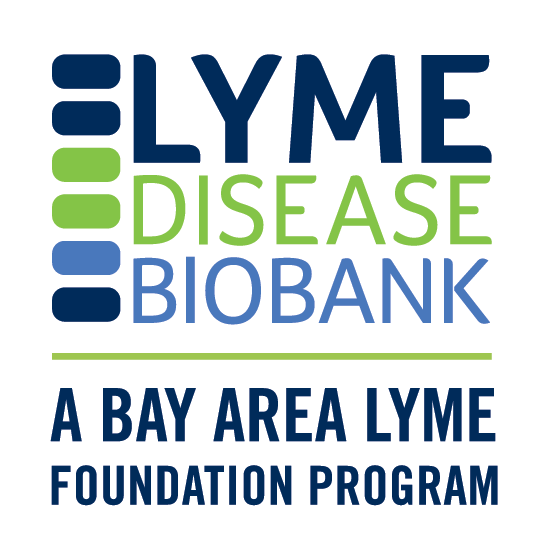Donate samples to Lyme Disease Biobank to aid research

By Liz Horn
A biobank, also known as a biorepository, is a collection of biological specimens or samples created for medical researchers to study a specific disease or condition.
Scientists need blood and tissue samples from people impacted by a disease in order to conduct research to better understand the mechanism of that disease, and to further the development of new diagnostics and treatments.
A vital research need
The Bay Area Lyme Foundation created the Lyme Disease Biobank (LDB) to help fill a vital research need among researchers working to better understand tick-borne diseases and to identify solutions.
The program collects blood and urine samples from untreated patients with early-stage Lyme disease as well as those with chronic disease.
Samples are also collected from people without Lyme disease, so researchers can compare differences in samples from people infected with Lyme disease with those who are not.
This program also includes tissue samples from late-stage Lyme patients who undergo surgery, and post-mortem samples from those who have passed away.
These samples are used by researchers to understand later stages of Lyme disease, and how the Lyme bacteria can invade organs and tissue.
Sign up now for future tissue donation
If you have chronic Lyme disease and are scheduled for surgery, you can arrange to donate tissue samples to LDB. Post-mortem samples can also be donated.
Such samples are critically important to Lyme disease research. They can help accelerate medical breakthroughs by allowing researchers to evaluate how tick-borne diseases infect body parts, such as a knee joint, and vital organs, such as a person’s heart and/or brain.
This LDB Tissue Program is conducted in partnership with National Disease Research Interchange (NDRI). NDRI is responsible for arranging the collection of tissue. The surgical program collects tissue from knee replacements or gallbladder surgery, as well as other surgeries on a case-by-case basis.
Participants are encouraged to also register with MyLymeData, LymeDisease.org’s big data research project. Through a partnership with MyLymeData, biobank participants can choose to link their tissue sample with clinical information, such as symptoms, co-infections, and treatment experiences. Connecting the tissue donation to this information can help researchers further understand this complex disease and identify solutions.
If you are interested in donating tissue, you must register in advance of your surgery. For post-mortem donations, please ensure that your family is aware of your desire to donate tissue.
Tissues donated to the LDB will be made available to approved researchers. This will provide the medical and scientific community with a much-needed resource to better understand these complex infections and the ability of Lyme bacteria to invade tissues and organs.
Things to consider about donating tissue:
- You must be 18 years or older, reside in the continental U.S., and be diagnosed with Lyme disease by a healthcare provider
- Your family or loved one must be aware of your wish to donate
- Only organs and tissues needed for research will be recovered
- There is no cost to tissue donors or families to participate
- For surgical donations, costs associated with the surgery remain the responsibility of the patient
- For post-mortem donations, funeral and cremation costs remain the responsibility of the family decision makers
To learn more about tissue donation, you can find FAQs here or contact NDRI directly at 800-222-NDRI (6374) option 5 or https://ndriresource.org/lyme-disease
7 collection centers
LDB currently has more than 800 human biological samples related to Lyme disease and other tick-borne infections, and we’re still collecting. Your participation could be crucial in paving the way for new diagnostics and therapeutics, as well as making strides to improve our understanding of these infections.
LDB is currently collecting samples at 7 collection centers on the East Coast, Upper Midwest, and California.
Beginning in October, we are enrolling patients with persistent/chronic Lyme disease in San Rafael, CA to donate blood and urine.
If you are interested in learning more about donating blood and urine in San Rafael, click here.
Making a difference
Currently, there are more than 40 research projects using LBD specimens. As we collect additional samples, we will be able to spur additional research efforts, especially in chronic and persistent Lyme disease.
There is much work to be done, but through our partnerships with NDRI and MyLymeData we have the opportunity to make great progress. Please consider joining our efforts.
Liz Horn is the Principal Investigator of Bay Area Lyme Foundation’s Lyme Disease Biobank.




















We invite you to comment on our Facebook page.
Visit LymeDisease.org Facebook Page